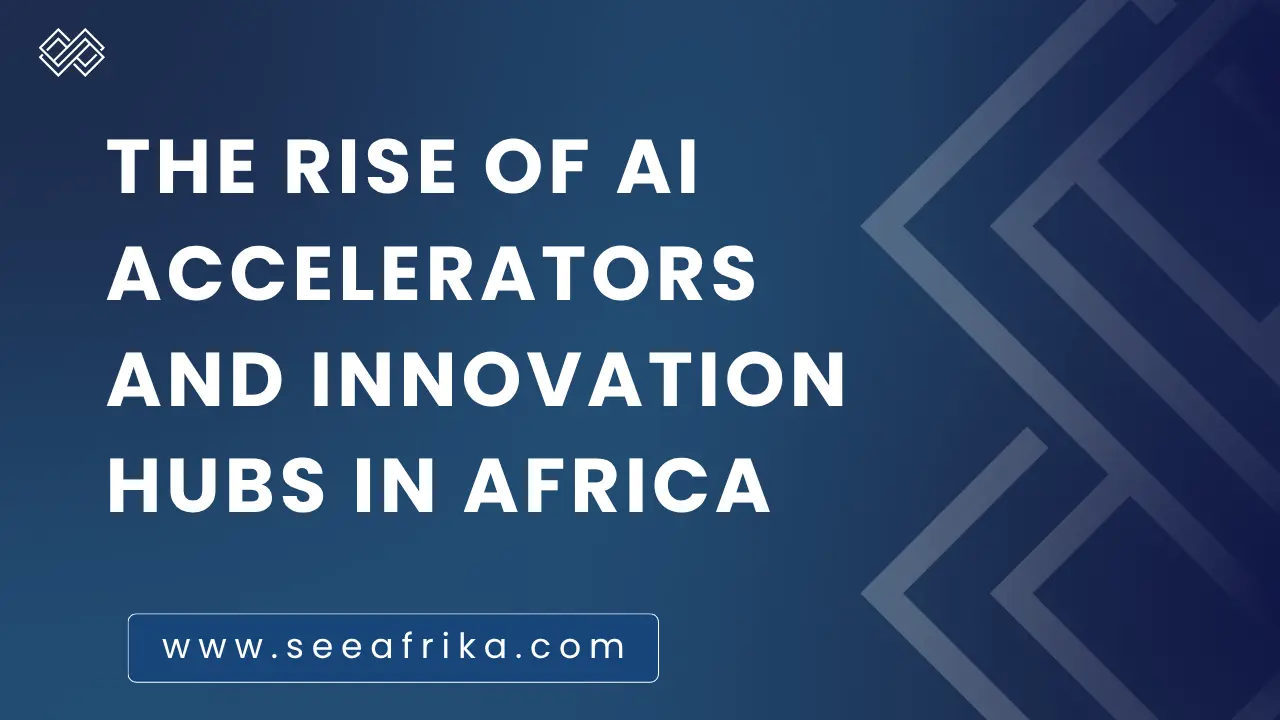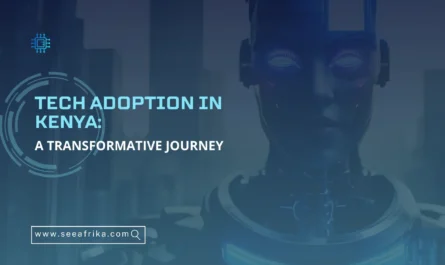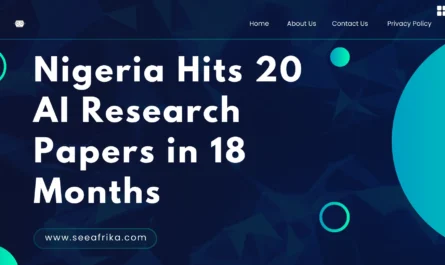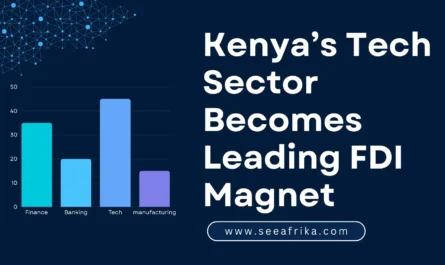AI startups in Africa raised over $3.2 billion in 2024. As of June 2025, 159 AI startups in Africa have raised $803.2 million in external funding. From Lagos to Kigali, innovation hubs in Africa are booming, transforming cities into tech powerhouses. The continent’s digital revolution is no longer a distant dream—it’s happening now.
AI accelerators are programmes that fast-track the growth of early-stage startups using artificial intelligence. They provide funding, mentorship, and access to technical resources. Innovation hubs in Africa are collaborative spaces where entrepreneurs, developers, and researchers come together to build, test, and scale innovative tech solutions.
Innovation hubs in Africa are dynamic spaces that drive technological progress across the continent. These hubs often include accelerators, incubators, and co-working spaces, each playing a unique role in nurturing startups and fostering collaboration. Accelerators are short-term, intensive programs designed to help startups scale quickly, providing mentorship, funding, and technical resources to support their growth.
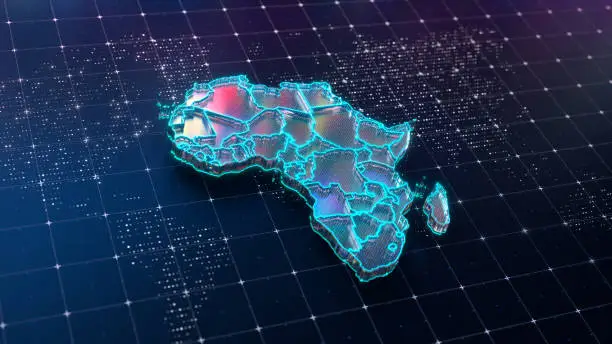
Incubators, on the other hand, offer longer-term support, nurturing early-stage ideas into viable businesses through guidance and infrastructure. Tech hubs—whether physical or virtual—create environments for innovation, networking, and knowledge sharing, bringing together entrepreneurs, developers, and researchers to collaborate on impactful solutions.
This blog explores how AI accelerators and innovation hubs in Africa are shaping the continent’s future by empowering local talent and supporting homegrown solutions. Now more than ever, these ecosystems matter for Africa’s digital transformation and global competitiveness.
Also read: AI Regulation in Africa: Ethics Meets Innovation
Why Africa Needs AI Accelerators
Africa stands at a crossroads, facing distinct challenges that demand innovative, technology-driven solutions. Smallholder farmers, for example, contend with pests, diseases, and erratic weather, all of which threaten food security and livelihoods. AI-powered platforms now enable these farmers to receive tailored crop advice, monitor soil health, and predict weather patterns, transforming traditional agriculture into a data-driven and resilient sector.
In healthcare, rural clinics often lack enough medical professionals. Still, AI-driven diagnostics and chatbots are bridging this gap, delivering expert guidance to remote areas, optimizing logistics, and improving patient outcomes. Education also benefits: millions of African children lack access to quality teachers, yet AI tutors and adaptive learning platforms are personalizing education, helping students in both urban and rural settings learn at their own pace and improve literacy rates.
A significant driver of this transformation is Africa’s youthful, digitally savvy population—the youngest in the world, with a median age under 20. This generation is not only eager to embrace technology but is also leading the charge in building solutions tailored to their communities’ unique needs.
Also read: Africa in the AI Age: Can the Continent Leapfrog into the Future?
However, traditional funding channels and infrastructure remain limited. Banks are often reluctant to invest in high-risk tech ventures, and research and development support is scarce, especially for early-stage startups.
This is where AI accelerators and innovation hubs in Africa play a pivotal role. These hubs provide:
- Access to capital and global investors: Connecting startups with much-needed funding to validate and scale their ideas.
- Mentorship from seasoned entrepreneurs: Guiding young innovators through business development, technical challenges, and market entry.
- Technical resources and training: Offering cloud credits, advanced hardware, and access to machine learning libraries.
Beyond these tangible benefits, innovation hubs in Africa are catalysts for job creation, data sovereignty, and homegrown innovation. They foster collaboration among entrepreneurs, researchers, and investors, creating vibrant communities that share knowledge and accelerate progress.
By empowering Africans to solve African problems, these hubs ensure that the continent is not just a consumer of global technology but a creator and leader in the AI revolution.

Core Features of AI Accelerators & Innovation Hubs in Africa
Here are the core features of AI accelerators and innovation hubs in Africa
Technical Support in Innovation Hubs in Africa
Innovation hubs in Africa provide vital technical support to startups. They offer free or subsidized cloud credits from major providers like Google Cloud, AWS, and Azure. These credits enable startups to access powerful computing resources without incurring significant costs.
Many innovation hubs in Africa also provide access to GPUs, curated datasets, and machine learning libraries—essential tools for building and training AI models. On-site labs equipped with high-speed internet and advanced hardware create ideal environments for innovation. This technical infrastructure helps startups overcome common challenges related to limited computing power and connectivity across the continent.
Business Development Services
Business development is a key focus of innovation hubs in Africa. These hubs offer one-on-one mentorship with experienced industry experts who guide startups on product development, marketing strategies, and scaling operations.
Innovation hubs in Africa also provide pitch training and facilitate introductions to investors, preparing entrepreneurs to secure funding and grow their businesses. Legal and financial advisory services help startups navigate complex regulations and manage finances effectively.
Furthermore, innovation hubs host workshops, hackathons, and AI boot camps that build skills and foster collaboration. Ideation labs and demo days give startups platforms to showcase their innovations, while guest lectures from global AI leaders inspire and educate founders.
Partnership Networks
Partnership networks are critical to the success of innovation hubs in Africa. These hubs collaborate with universities and research centers to bridge the gap between academic research and practical applications.
Governments and global tech giants also partner with innovation hubs in Africa, bringing resources and aligning innovation efforts with national development goals. NGOs and development agencies join these collaborations to address social challenges through technology. Such partnerships amplify the impact of innovation hubs in Africa by pooling expertise, funding, and infrastructure.
Community Building and Inclusion
Community building is central to innovation hubs in Africa. These hubs facilitate peer networking through forums, Slack, and Discord groups, creating vibrant ecosystems where entrepreneurs can share knowledge and support one another.
Alumni networks and founder meetups encourage ongoing collaboration and mentorship. Special programs focus on women in tech and youth inclusion, addressing gender and regional disparities in the tech ecosystem. By nurturing diverse and inclusive communities, innovation hubs in Africa ensure that AI innovation benefits all segments of society and drives equitable growth.
Also read: AI Tools Transforming Classrooms in Africa: A New Era in Education
Notable AI Accelerators and Innovation Hubs in Africa
Innovation hubs in Africa are flourishing across the continent, each region showcasing unique strengths and initiatives that drive AI innovation forward.
1. West Africa
In West Africa, Data Science Nigeria (DSN) stands out as a leading innovation hub in Africa. Based in Lagos, DSN offers free AI classes, a 100-seat classroom, and a dedicated workspace for startups.
The hub focuses on sectors like EdTech, FinTech, AgriTech, and MedTech, providing critical technical support, mentorship, and funding opportunities. Backed by global partners such as Microsoft and the Gates Foundation, DSN aims to train one million Africans in AI, making it a cornerstone of AI education and entrepreneurship in the region.
Another key player is CcHub, which started in Lagos and expanded to Kigali, Rwanda, with an $11 million investment. CcHub supports startups through design labs, mentorship, and funding. Its Women in Tech Accelerator has launched dozens of AI ventures, highlighting the importance of diversity in tech innovation.
Additionally, grassroots initiatives like AI Saturdays Lagos offer free weekend machine learning courses, nurturing local AI talent. Edo Innovates also contributes by supporting tech entrepreneurs in Edo State and across Nigeria, further strengthening the ecosystem.
2. East Africa
In East Africa, innovation hubs continue to thrive, with notable examples including iHub Nairobi, one of the continent’s oldest and most influential tech hubs. iHub provides funding, mentorship, and fosters international partnerships, helping launch hundreds of AI startups and building a vibrant innovation ecosystem.
IBM Research Africa in Nairobi focuses on AI solutions for healthcare and agriculture, combining research with practical commercialization. Meanwhile, Africa’s Talking AI Studio enables businesses to create AI-powered communication tools, expanding the reach of AI-driven services.
3. South Africa
Moving to Southern Africa, hubs like AI Expo Africa and AI Media Group in South Africa host the continent’s largest AI event, bringing together startups, corporates, and investors. These platforms accelerate B2B AI adoption and showcase real-world applications.
The Explore AI Academy in Cape Town offers data science and AI education, connecting graduates to employment opportunities and contributing to the development of a skilled workforce.
4. North Africa
In North Africa, notable innovation hubs include Casablanca AI in Morocco, a vibrant community that hosts meetups and workshops on generative AI and applied machine learning. InstaDeep in Tunisia is a standout success story, recently acquired by BioNTech for its AI-driven biotech innovations, demonstrating the global potential of African AI startups. Beyond regional hubs, pan-African initiatives like Zindi play a crucial role.
Zindi is a competition platform where thousands of data scientists solve real-world African problems through hackathons, connecting talent with employers and fostering a continent-wide AI community. Another major pan-African event is the Deep Learning Indaba, an annual gathering of African machine learning researchers and practitioners that promotes collaboration and knowledge sharing.
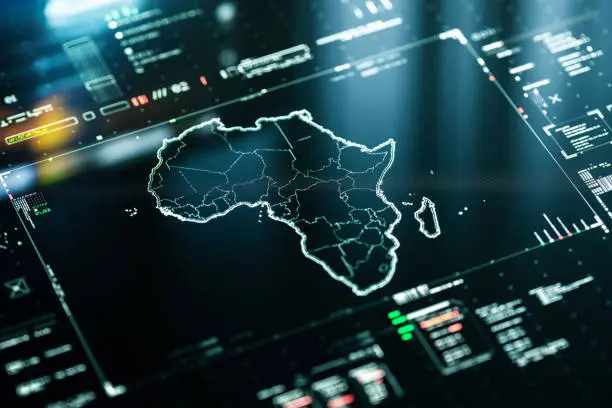
The Role of Governments, NGOs, and Corporations
1. Policy Support
Governments across Africa are laying the groundwork to support AI innovation. Rwanda’s AI policy and the Smart Africa initiative offer grants and regulatory clarity, enabling AI startups to thrive. These policies reduce uncertainty and encourage investment.
Kenya’s digital economy blueprint also plays a vital role in building the infrastructure and skills necessary for a robust tech ecosystem. Such government frameworks directly benefit innovation hubs in Africa by creating a stable environment that fosters the growth of startups.
2. Donor-Backed Programs
International donors and development agencies are key partners for innovation hubs in Africa. Organizations like GIZ, UNDP, and the Mastercard Foundation fund AI education and capacity building programs. These initiatives provide resources and training that empower local entrepreneurs.
The African Development Bank’s AI for Africa Challenge, which awarded $1 million in 2024 to climate-focused AI startups, exemplifies how donor funding accelerates impactful innovation. These programs strengthen innovation hubs in Africa by expanding their reach and supporting startups that tackle critical challenges.
3. Corporate Accelerators
Global tech companies actively support innovation hubs in Africa through corporate accelerators. Google for Startups Accelerator Africa and Microsoft AI for Good offer funding, cloud credits, and mentorship to promising AI ventures.
These programs connect startups with cutting-edge technology and expert guidance, helping them scale faster. By partnering with innovation hubs in Africa, these corporations facilitate access to global markets and resources, boosting the continent’s AI ecosystem.
4. Cross-Sector Collaborations
Collaboration between public, private, and academic sectors is essential for sustainable growth. Public-private partnerships connect universities, governments, and corporations to establish a robust support network for innovation hubs in Africa.
These partnerships enable knowledge sharing, joint projects, and resource pooling. Together, they build a robust ecosystem that nurtures AI startups and drives innovation tailored to Africa’s unique needs.
Key Challenges Facing AI Accelerators in Africa
The following are the key challenges facing AI accelerators in Africa.
1. Limited Funding
Innovation hubs in Africa struggle with limited funding. Despite the continent’s vast potential, about 2% of global AI investment is directed to Africa. Local venture capital is scarce, particularly for deep-tech startups that require substantial early-stage funding.
This shortage restricts the capacity of innovation hubs in Africa to support and scale promising AI ventures.
2. Data Accessibility
Access to high-quality, labeled datasets remains a significant hurdle. Many African languages and cultural contexts are underrepresented or missing in global AI datasets. This lack of relevant data makes it difficult for startups within innovation hubs in Africa to develop AI solutions tailored to local needs, reducing their effectiveness and inclusivity.
3. Infrastructure Gaps
Infrastructure challenges also slow progress. Unreliable electricity, slow internet speeds, and limited access to GPUs and advanced hardware are common, especially outside major urban centers. These issues hamper the ability of innovation hubs in Africa to provide startups with the technical environment needed to build and deploy AI applications.
4. Brain Drain
The migration of skilled AI researchers and engineers abroad weakens local talent pools. This brain drain reduces the expertise available within innovation hubs in Africa, making it more challenging to sustain a thriving AI ecosystem and develop homegrown solutions.
5. Regulatory Uncertainty
Unclear policies on AI development, data privacy, and governance create barriers for startups and investors. Regulatory ambiguity deters investment and slows innovation. Innovation hubs in Africa need transparent and supportive legal frameworks to foster trust and encourage responsible AI development.
Addressing these challenges is critical for unlocking the full potential of innovation hubs in Africa and accelerating the continent’s AI revolution.
Related: Tech Adoption in Kenya: A Transformative Journey
Opportunities and the Way Forward
Innovation hubs in Africa are uniquely positioned to seize emerging opportunities that can accelerate the continent’s AI revolution. By focusing on localized solutions and inclusive growth, these hubs can drive sustainable innovation that truly benefits African communities.
1. Localized AI Models
One of the most promising opportunities lies in building AI models that understand African languages, cultures, and contexts. Most global AI tools are designed for Western languages and data, which limits their effectiveness in Africa.
Innovation hubs in Africa are leading efforts to create localized AI that speaks indigenous languages like Swahili, Yoruba, Amharic, and Zulu. For example, Data Science Nigeria has developed natural language processing tools tailored to Nigerian languages, helping improve communication and accessibility.
Localized AI unlocks new markets by making technology more relevant and user-friendly, thereby driving wider adoption across various sectors, including education, healthcare, and finance.
2. Edge AI and Offline Applications
Many rural African communities face connectivity challenges, with limited or no access to the internet. Innovation hubs in Africa are championing Edge AI—AI that runs locally on devices without requiring constant internet connectivity.
This approach enables applications like offline health diagnostics, agricultural monitoring, and educational tools to function reliably in remote areas. For instance, startups supported by CcHub have developed offline AI-powered apps that assist farmers in pest detection and crop management.
Edge AI solutions help bridge the digital divide, enabling rural populations to benefit from AI advancements.
3. Pan-African Data Lakes
Open data initiatives present another significant opportunity. Innovation hubs in Africa are advocating for Pan-African data lakes—large, shared repositories of diverse datasets collected across countries and sectors. These data lakes can fuel research and innovation by providing startups and researchers with the rich, varied data needed to build robust AI models.
Platforms like Zindi already host competitions using African datasets, encouraging data scientists to solve continent-specific problems. By pooling data resources, innovation hubs in Africa can accelerate AI development and foster collaboration across borders.
4. AI Ethics Frameworks
As AI adoption grows, developing ethical guidelines rooted in African values is essential. Innovation hubs in Africa are increasingly focused on creating AI ethics frameworks that address privacy, fairness, and accountability in ways that resonate with local cultures and societal norms.
For example, the Deep Learning Indaba community promotes discussions on the responsible use of AI tailored to African contexts. These ethics frameworks ensure that AI technologies are inclusive and respect human rights, building trust among users and stakeholders.
5. Fostering Inclusion
Inclusion remains a critical priority for innovation hubs in Africa. These hubs actively work to promote gender equity, regional representation, and socioeconomic diversity within the AI ecosystem.
Programs like CcHub’s Women in Tech Accelerator provide targeted support to women-led startups, while initiatives in rural areas aim to empower local innovators who often lack access to resources.
By fostering inclusion, innovation hubs in Africa ensure that AI benefits reach all segments of society, driving equitable growth and opportunity.
Also read: Top 10 Insurance Companies in Africa
Conclusion
AI accelerators and innovation hubs in Africa are reshaping the continent’s digital economy. They nurture talent, drive local solutions, and create jobs. Africa is not just consuming AI—it’s building, shaping, and localizing it for its unique needs.
In this exciting era, innovation hubs in Africa represent not only centers of technological advancement but also beacons of hope and opportunity. They embody Africa’s potential to lead the global AI revolution by building solutions that are inclusive, ethical, and deeply rooted in local realities.
Engaging with and supporting these hubs is essential for anyone who wants to be part of Africa’s remarkable AI journey.

